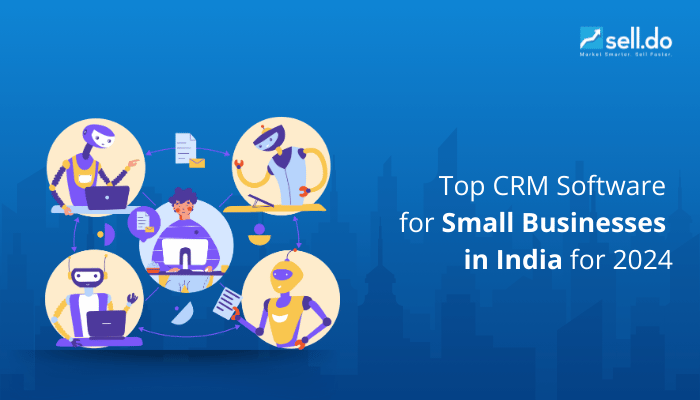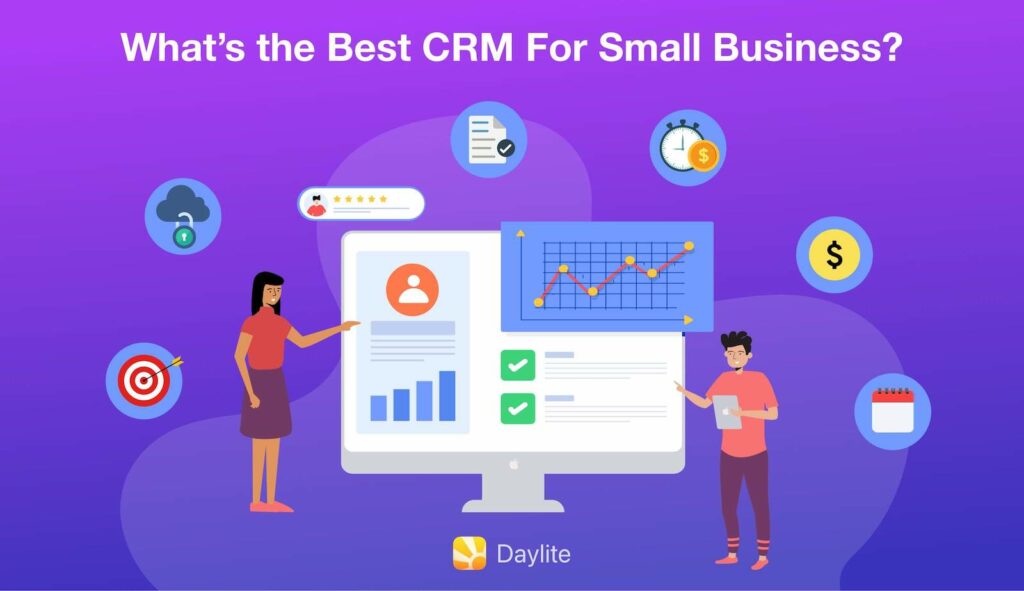Supercharge Your Small Business: The Ultimate Guide to CRM Tools
Supercharge Your Small Business: The Ultimate Guide to CRM Tools
In the dynamic world of small business, staying ahead requires more than just a great product or service. It demands a keen understanding of your customers and a seamless system for managing all interactions. That’s where Customer Relationship Management (CRM) tools come in. This comprehensive guide dives deep into the world of small business CRM tools, exploring their benefits, key features, and how to choose the perfect one for your needs. Get ready to transform your customer relationships and boost your bottom line!
What is a CRM and Why Does Your Small Business Need One?
At its core, a CRM is a system that helps businesses manage their interactions with current and potential customers. It’s a centralized hub for all customer-related data, streamlining communication and fostering stronger relationships. But why is a CRM so crucial for small businesses? Let’s break it down.
Improved Customer Relationships
Imagine having a complete history of every interaction with a customer, right at your fingertips. With a CRM, you can track past purchases, support tickets, communication history, and more. This allows you to personalize your interactions, anticipate customer needs, and provide exceptional service. Happy customers are loyal customers, and loyal customers are the lifeblood of any small business.
Enhanced Sales Productivity
CRM tools automate many of the time-consuming tasks that bog down sales teams, such as data entry, lead tracking, and follow-up reminders. This frees up your sales reps to focus on what they do best: building relationships and closing deals. CRM systems also provide valuable sales insights, allowing you to identify high-potential leads and optimize your sales process.
Data-Driven Decision Making
A CRM gathers and analyzes data about your customers and sales activities, providing valuable insights into your business. You can track key performance indicators (KPIs), identify trends, and make data-driven decisions that improve your marketing, sales, and customer service efforts. No more guessing – just informed decisions based on solid data.
Increased Efficiency and Organization
Say goodbye to scattered spreadsheets and disorganized email threads. A CRM centralizes all customer data in one place, making it easy to access and manage. This improves collaboration among team members, reduces errors, and streamlines your overall business operations. Efficiency is key in the fast-paced world of small business.
Better Marketing ROI
CRM systems allow you to segment your customer base and tailor your marketing campaigns to specific groups. This targeted approach increases the effectiveness of your marketing efforts and improves your return on investment (ROI). Reach the right customers with the right message at the right time.
Key Features to Look for in a Small Business CRM
Not all CRM tools are created equal. When choosing a CRM for your small business, it’s important to consider the features that will best meet your specific needs. Here are some essential features to look for:
Contact Management
This is the foundation of any good CRM. It should allow you to store and manage all your customer contact information, including names, addresses, phone numbers, email addresses, and social media profiles. Look for features like contact segmentation, tagging, and the ability to import and export contacts easily.
Lead Management
A good CRM will help you track leads throughout the sales pipeline, from initial contact to conversion. This includes features like lead scoring, lead assignment, and the ability to track lead source. You’ll be able to nurture leads effectively and ensure that no potential customer slips through the cracks.
Sales Automation
Automate repetitive sales tasks, such as sending follow-up emails, scheduling appointments, and creating sales reports. This frees up your sales team to focus on more strategic activities, such as building relationships and closing deals. Automation is your friend when it comes to boosting productivity.
Sales Reporting and Analytics
Gain valuable insights into your sales performance with robust reporting and analytics features. Track key metrics, such as sales revenue, conversion rates, and sales cycle length. Use this data to identify areas for improvement and optimize your sales process. Data is power, and a good CRM gives you plenty of it.
Email Integration
Seamlessly integrate your CRM with your email provider to track email communication with customers and prospects. This allows you to see a complete history of all interactions, right within your CRM. No more switching between different platforms – everything is in one place.
Task Management and Reminders
Stay organized and never miss a follow-up with task management and reminder features. Set reminders for calls, meetings, and other important tasks. This helps you stay on top of your to-do list and ensures that you’re always providing timely and responsive service.
Mobile Access
In today’s mobile world, it’s essential to have access to your CRM on the go. Look for a CRM with a mobile app that allows you to access your customer data, manage tasks, and communicate with your team from anywhere. Stay connected, even when you’re away from the office.
Integration with Other Tools
Choose a CRM that integrates with the other tools you use, such as your email marketing platform, accounting software, and social media channels. This will streamline your workflows and eliminate the need to manually transfer data between different systems. Integration is key to maximizing efficiency.
Customization Options
Your CRM should be customizable to fit your specific business needs. Look for features like custom fields, custom reports, and the ability to tailor the CRM to your unique workflows. A flexible CRM is a valuable CRM.
Top CRM Tools for Small Businesses: A Comparative Overview
Now that you know what to look for, let’s explore some of the top CRM tools specifically designed for small businesses. Each tool has its own strengths and weaknesses, so consider your specific needs and budget when making your decision.
Zoho CRM
Zoho CRM is a popular and feature-rich CRM that offers a wide range of tools for sales, marketing, and customer service. It’s known for its user-friendly interface, robust automation capabilities, and affordable pricing plans. Zoho CRM is a great all-around choice for small businesses looking for a comprehensive CRM solution.
- Pros: User-friendly interface, robust automation, affordable pricing, extensive features.
- Cons: Can be overwhelming for beginners due to the number of features, some advanced features may require higher-tier plans.
HubSpot CRM
HubSpot CRM is a free CRM that’s perfect for small businesses just starting out. It’s incredibly easy to use and offers a range of features, including contact management, lead tracking, and sales automation. HubSpot CRM also integrates seamlessly with HubSpot’s other marketing and sales tools, making it a great choice for businesses looking for an integrated solution. HubSpot’s free CRM is a great starting point, and their paid plans offer even more advanced features.
- Pros: Free version available, user-friendly interface, excellent integration with other HubSpot tools.
- Cons: Limited features in the free version, some advanced features require paid plans.
Pipedrive
Pipedrive is a sales-focused CRM that’s designed to help sales teams manage their leads and close deals. It’s known for its intuitive interface, visual pipeline, and strong reporting capabilities. Pipedrive is a great choice for small businesses that are focused on sales and want a CRM that’s easy to use and understand. It’s all about streamlining the sales process.
- Pros: Intuitive interface, visual pipeline, strong reporting capabilities, sales-focused.
- Cons: May lack some of the marketing features of other CRMs, can be expensive for larger teams.
Freshsales
Freshsales is a cloud-based CRM that offers a range of features for sales, marketing, and customer service. It’s known for its ease of use, affordable pricing, and excellent customer support. Freshsales is a great choice for small businesses looking for a reliable and affordable CRM solution. Freshsales offers a solid feature set at a competitive price.
- Pros: Easy to use, affordable pricing, excellent customer support, good features for sales teams.
- Cons: May lack some of the advanced features of other CRMs, less integration options than some competitors.
Salesforce Essentials
Salesforce Essentials is a scaled-down version of the popular Salesforce CRM, designed specifically for small businesses. It offers a range of features for sales and customer service, including contact management, lead tracking, and sales automation. Salesforce Essentials is a good choice for small businesses that want the power of Salesforce without the complexity and cost of the full platform. It’s Salesforce, simplified.
- Pros: Powerful features, integration with other Salesforce tools, good for growing businesses.
- Cons: Can be more expensive than other options, can be complex to set up and use.
Choosing the Right CRM for Your Small Business: A Step-by-Step Guide
Choosing the right CRM can feel overwhelming, but by following these steps, you can find the perfect tool for your needs:
1. Define Your Needs and Goals
Before you start evaluating CRM tools, take some time to define your specific needs and goals. What are you hoping to achieve with a CRM? What are your biggest pain points? What features are essential for your business? Clearly defining your needs will help you narrow down your options and choose the right CRM.
2. Assess Your Budget
CRM tools come in a variety of price points, from free to thousands of dollars per month. Determine how much you’re willing to spend on a CRM and factor in the cost of implementation, training, and ongoing support. Set a realistic budget and stick to it. Remember to consider the long-term value and return on investment.
3. Research and Compare Options
Once you’ve defined your needs and budget, start researching different CRM tools. Read reviews, compare features, and consider the pros and cons of each option. Make a shortlist of the tools that seem like a good fit for your business. Don’t be afraid to dig deep and compare your options.
4. Request Demos and Free Trials
Most CRM providers offer demos and free trials. Take advantage of these opportunities to test out the tools and see how they work in practice. This will give you a better understanding of the user interface, features, and overall usability. Get your hands on the tools and see how they feel.
5. Consider Integration with Other Tools
Think about the other tools you use in your business, such as your email marketing platform, accounting software, and social media channels. Choose a CRM that integrates seamlessly with these tools to streamline your workflows and eliminate the need for manual data entry. Integration is key to efficiency.
6. Evaluate Scalability
As your business grows, your CRM needs will likely change. Choose a CRM that can scale with your business and accommodate your future needs. Look for a CRM that offers different pricing plans and features to meet your evolving requirements. Plan for the future and choose a CRM that can grow with you.
7. Prioritize User-Friendliness
A CRM is only as good as its users. Choose a CRM that is easy to use and intuitive. This will ensure that your team actually uses the tool and that you get the most out of your investment. A user-friendly CRM is a must-have.
8. Consider Customer Support and Training
Make sure the CRM provider offers adequate customer support and training resources. This is especially important if you’re new to CRM or if you have a complex business. Look for a provider that offers tutorials, documentation, and responsive customer support. Support is essential when you need it.
Implementing Your New CRM: Best Practices
Once you’ve chosen a CRM, it’s time to implement it. Here are some best practices to ensure a smooth transition:
1. Plan Your Implementation
Before you start implementing your CRM, create a detailed plan. This should include your goals, timelines, and the steps you need to take to get your CRM up and running. Planning is the key to success.
2. Clean Your Data
Before importing your data into your CRM, take some time to clean it up. This includes removing duplicates, correcting errors, and ensuring that your data is accurate and consistent. Clean data is the foundation of a successful CRM.
3. Customize Your CRM
Tailor your CRM to your specific business needs. This includes setting up custom fields, creating custom reports, and configuring the CRM to match your workflows. Customization maximizes the value of your CRM.
4. Train Your Team
Provide adequate training to your team on how to use the CRM. This includes showing them how to navigate the interface, enter data, and use the key features. Training is critical for user adoption.
5. Monitor and Evaluate
Once your CRM is up and running, monitor its performance and evaluate its effectiveness. Track your KPIs, identify areas for improvement, and make adjustments as needed. Continuous improvement is key to maximizing the value of your CRM.
6. Integrate Your CRM with Other Systems
Connect your CRM with other tools you use, like your email marketing platform, accounting software, and social media channels. This will streamline workflows and make your operations more efficient. Integration is the secret weapon for efficiency.
7. Stay Updated
CRM providers regularly release updates and new features. Stay up-to-date on these updates to ensure that you’re getting the most out of your CRM. Stay informed to stay ahead.
The Future of CRM for Small Businesses
The world of CRM is constantly evolving, and small businesses can expect to see even more innovation in the years to come. Here are some trends to watch out for:
Artificial Intelligence (AI)
AI is already playing a major role in CRM, and its influence will only grow. AI-powered CRM tools can automate tasks, provide insights, and personalize customer interactions. Expect to see even more AI-driven features in CRM tools in the future. AI is changing the game.
Increased Personalization
Customers expect personalized experiences, and CRM tools are enabling businesses to deliver them. CRM tools will become even more sophisticated at collecting and analyzing customer data to personalize marketing campaigns, sales interactions, and customer service. Personalization is the future of customer engagement.
Mobile-First Approach
With the increasing use of mobile devices, CRM tools will continue to prioritize mobile access and functionality. Expect to see more mobile apps, improved mobile interfaces, and features designed specifically for mobile users. Mobile is the new normal.
Focus on Customer Experience
Businesses are increasingly focused on providing exceptional customer experiences. CRM tools will play a critical role in helping businesses achieve this goal by providing a 360-degree view of the customer and enabling personalized interactions. Customer experience is the ultimate differentiator.
Integration with Emerging Technologies
CRM tools will continue to integrate with emerging technologies, such as the Internet of Things (IoT) and virtual reality (VR). This will enable businesses to gather more data about their customers and create even more immersive and engaging experiences. The future is connected.




